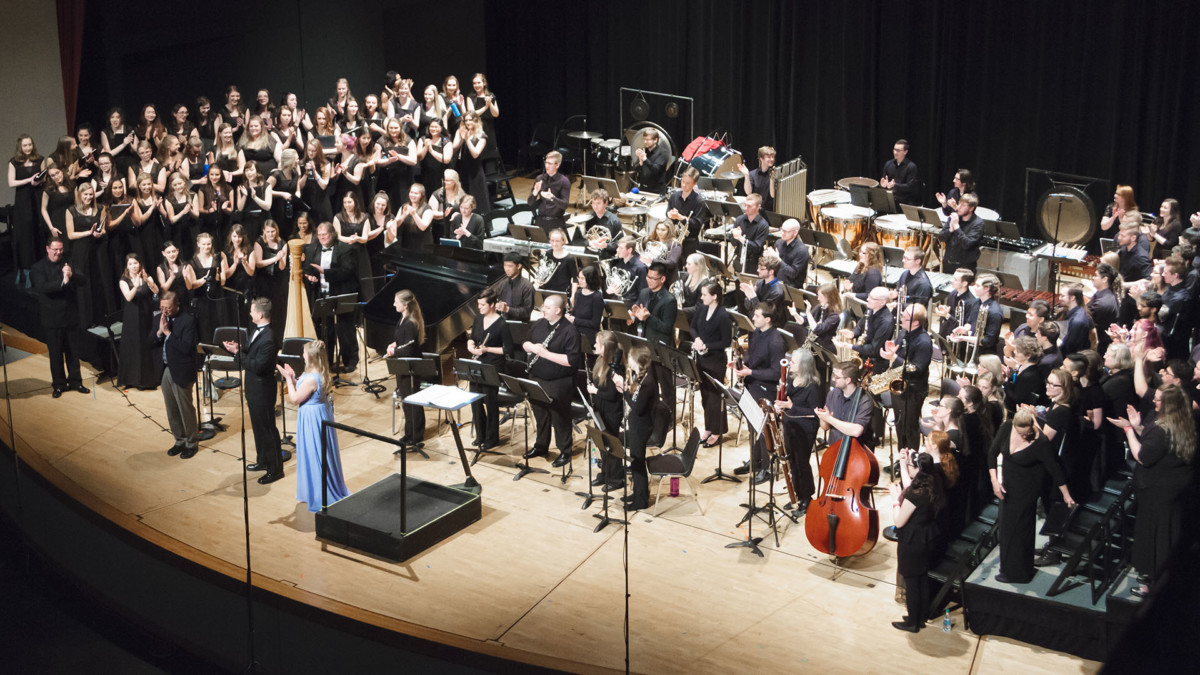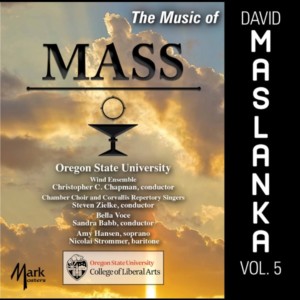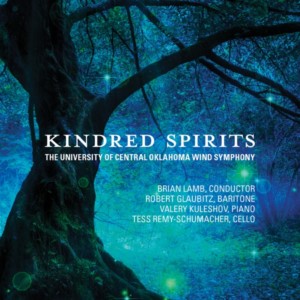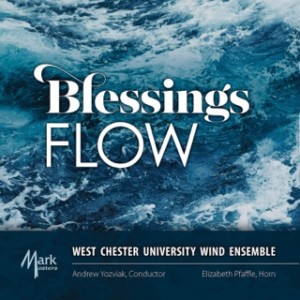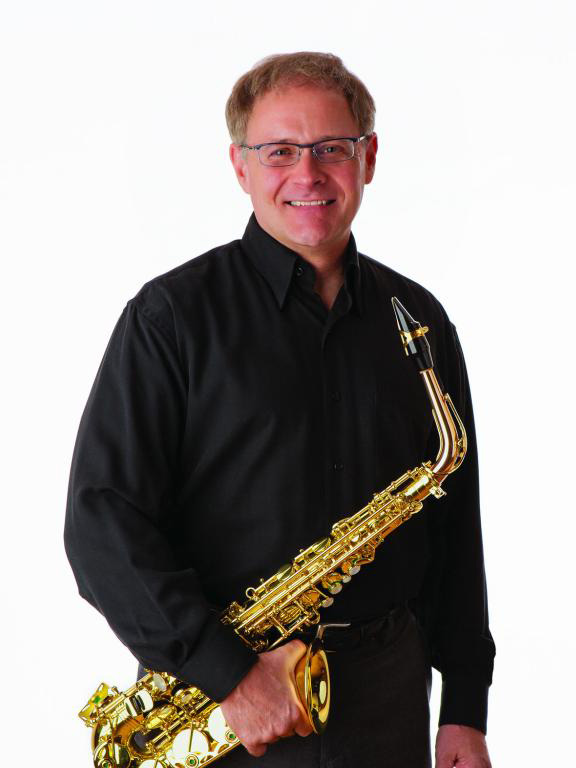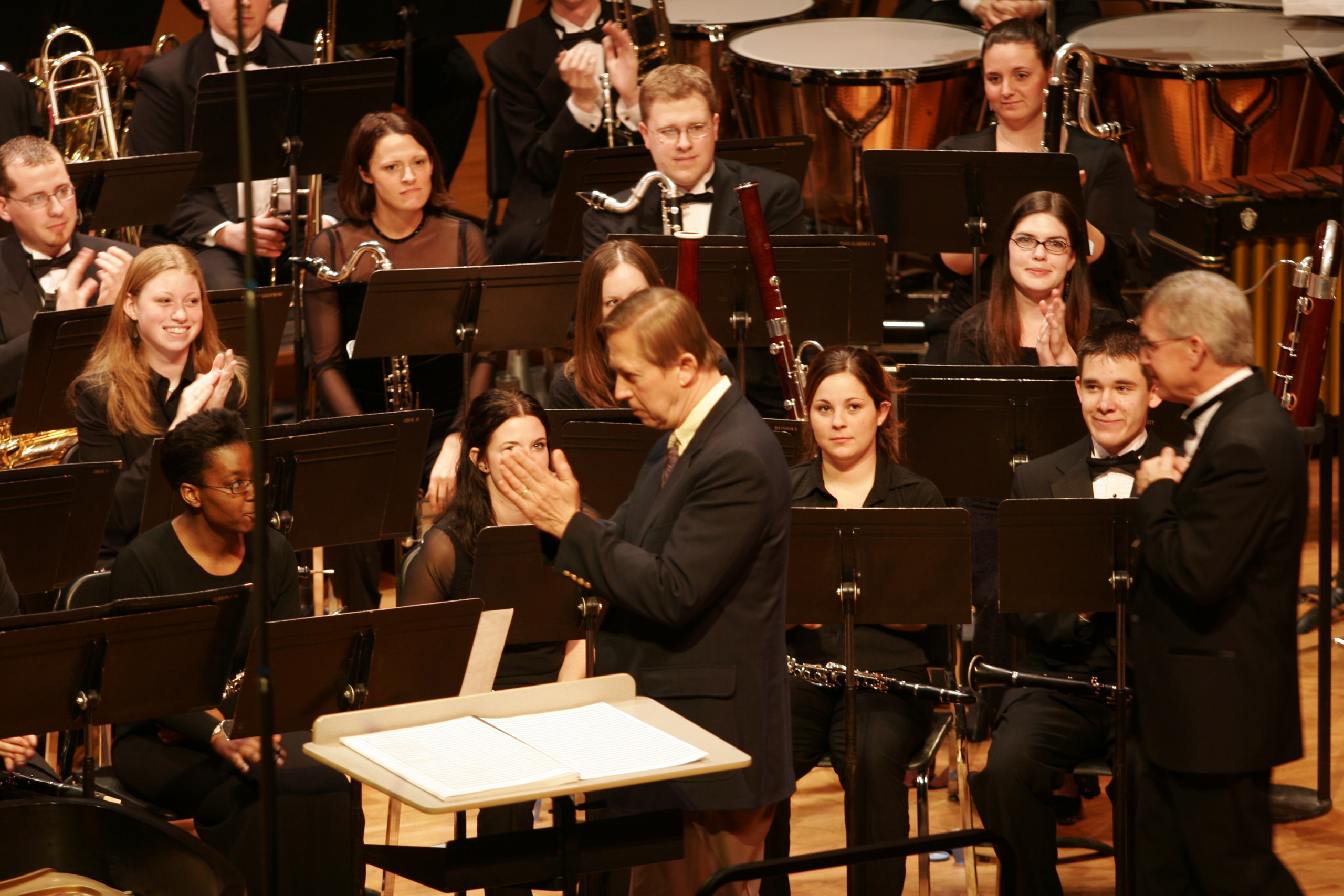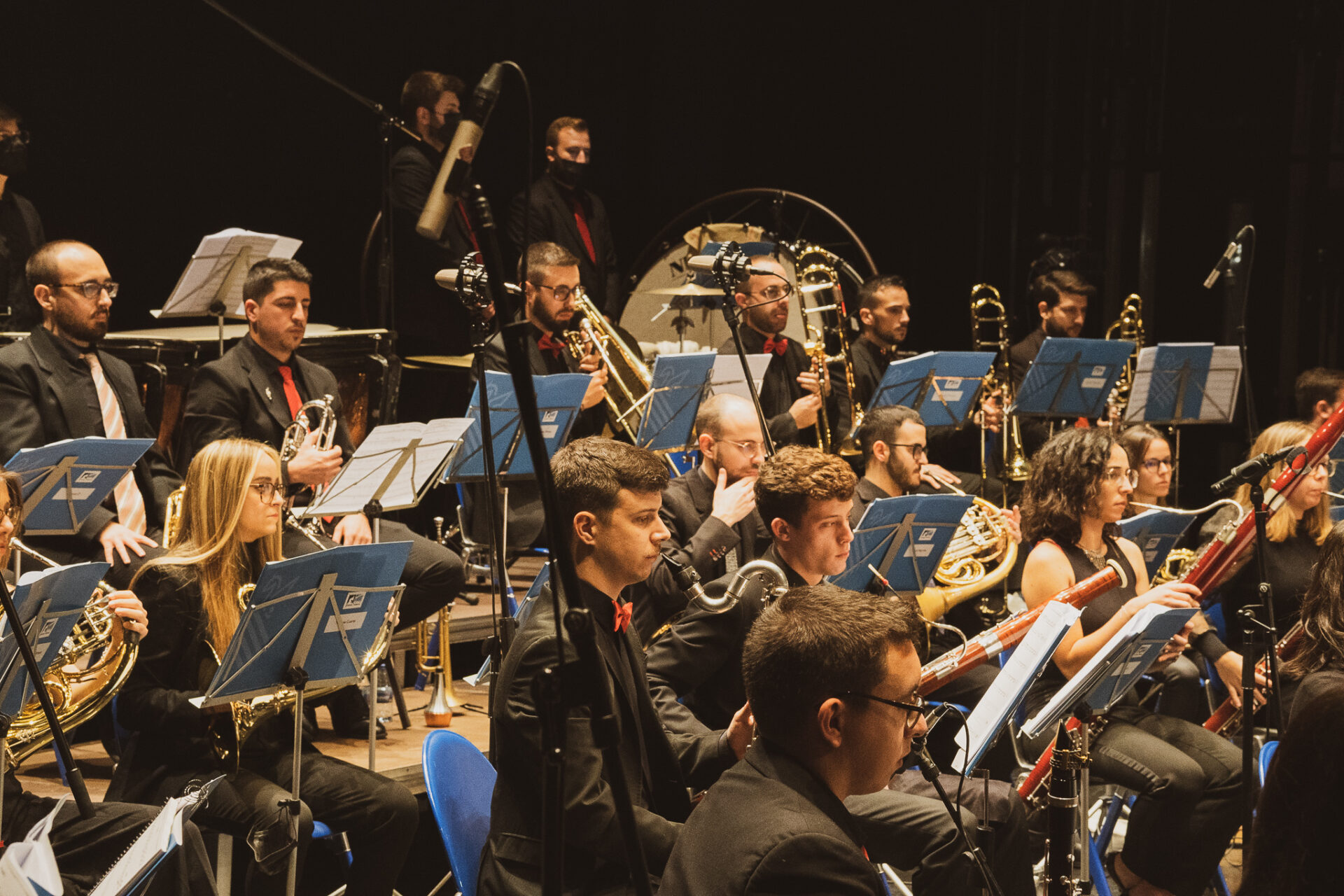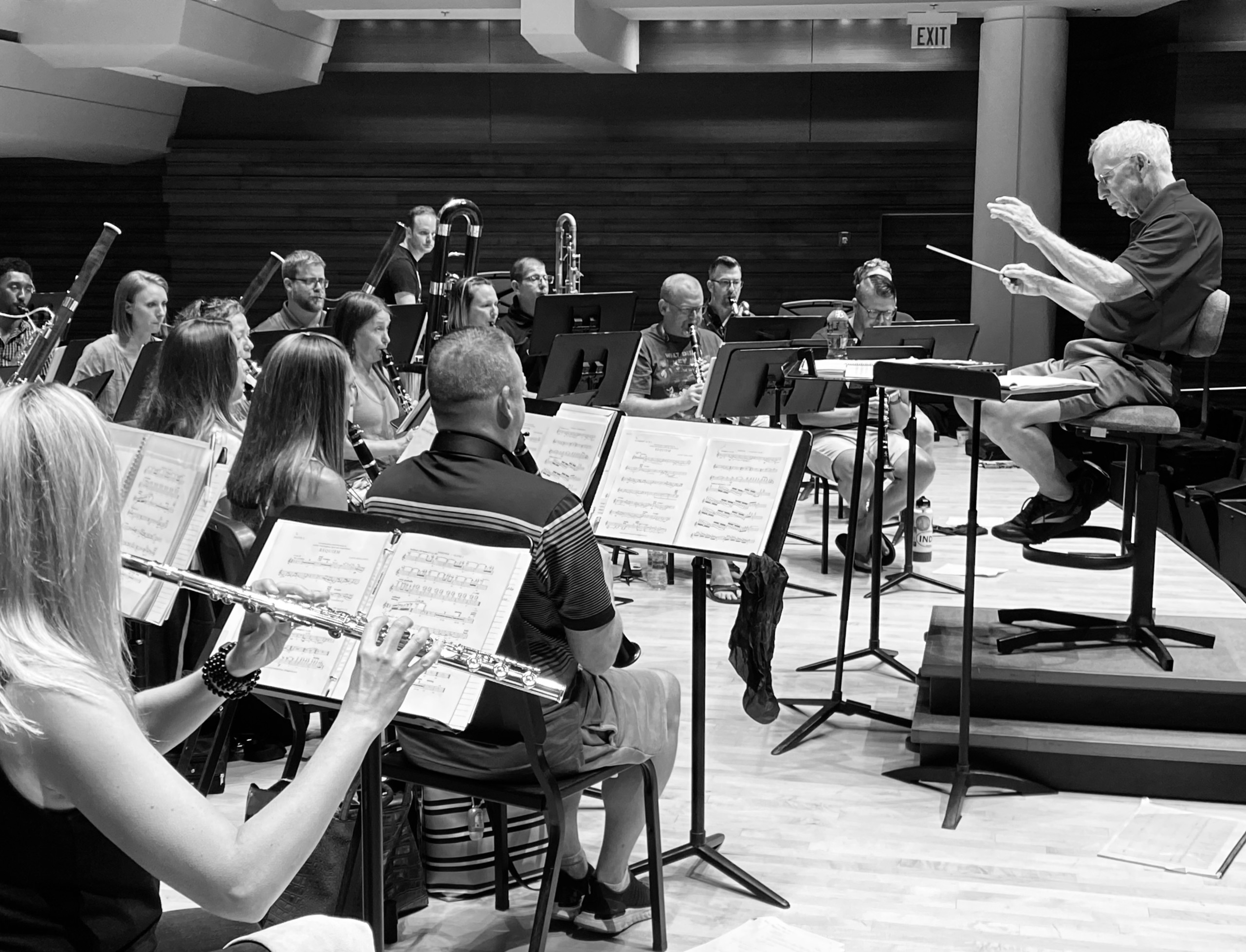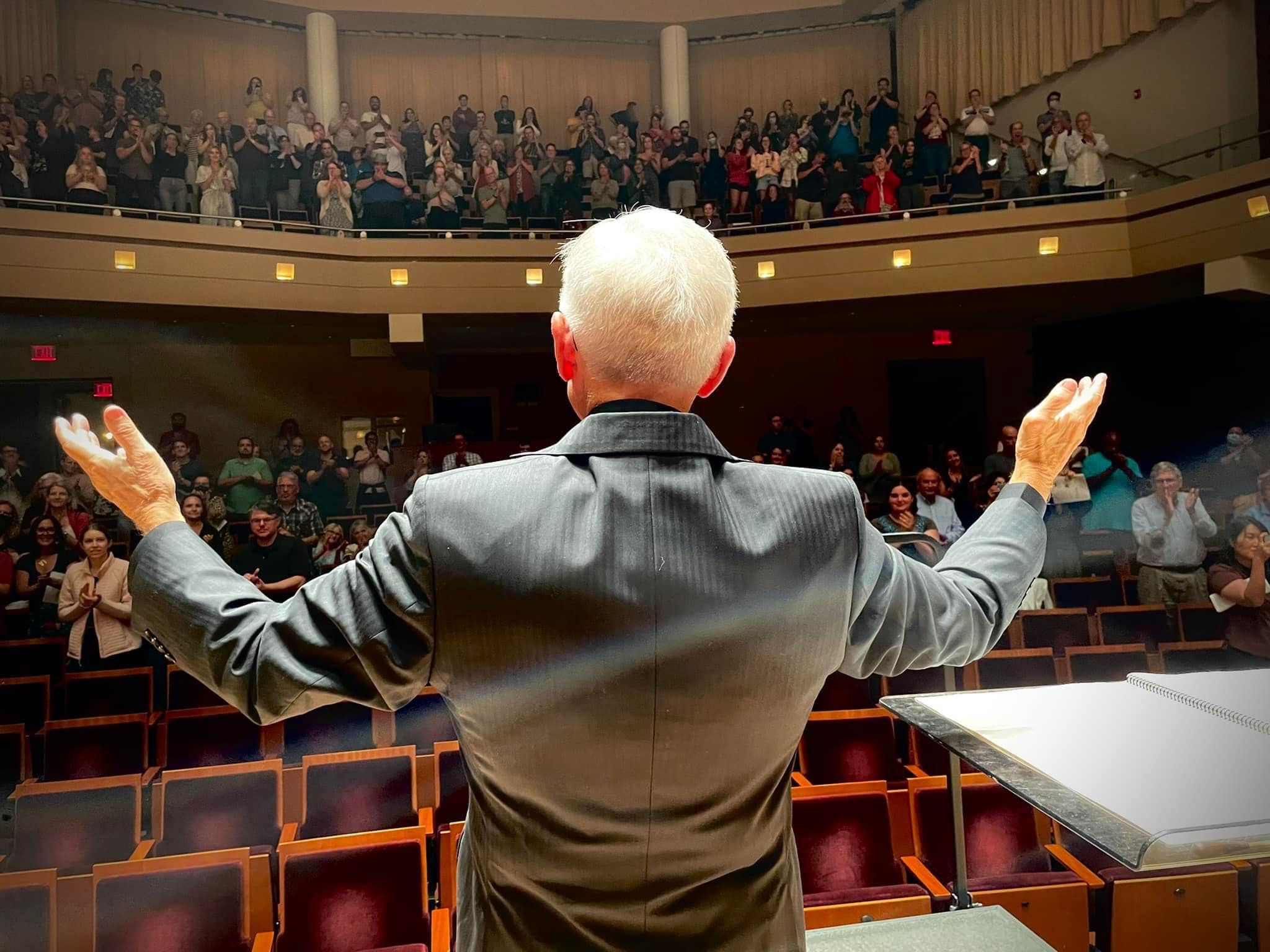Photo by Zachary C. Person
Maslanka Weekly highlights excellent performances of David Maslanka’s music from around the web.
Audio recordings of David Maslanka’s music are always high in demand. With more professional, semi-professional, and collegiate musicians playing David’s music, there is hardly a major composition that does not have one or more studio recordings. This week, we feature three new recordings of favorite works: Mass, Remember Me, and Symphony No. 4.
Mass
From David’s Program Note:
I have come to understand that transformation is the main theme of my life. Over the course of many years and a long inner journey, I have gravitated toward the Latin Mass as the significant statement of transformation. If I have gravitated toward the Mass, I must also acknowledge the action of God in all the years of my life, especially in the years of turmoil and uncertainty, moving me toward this point of opening and understanding. If transformation is the issue, then transformation toward what? The center of the Mass is the Credo, and the center of the Credo is the Crucifixus. For me the Crucifixus symbolizes the opening of the ego, and the Resurrexit the birth of the inner child. The whole of the Mass supports and makes plain this inner transformation and its result: the heart of love, the voice of praise, the assurance that the universe is ultimately personal and that no one is lost. In mysterious statements and in a “dead” language, the Mass texts speak to the opening of the heart and its connection to God.
Almost from the start of my thinking about the Mass, I was moved to include the “female creative,” or the “Holy Mother,” an image which has arisen in many forms in my meditative life. I asked my friend Richard Beale to consider the problem. His marvelous and almost instantaneous response was Hymn to Sophia, Holy Wisdom, a set of seven poems on the “Holy Mother” theme, which I have used as preludes to the Latin texts. I must say that the awareness of the “Holy Mother” has become over a number of years the significant catalyst for my creative work, and I acknowledge this presence in my life with a sense of wonder and gratitude.
Watch below as Christopher C. Chapman leads Soprano Amy Hansen, Baritone Nicolai Strommer, The Oregon State University Wind Ensemble, The Oregon State University Chamber Choir, The Corvallis Repertory Singers, and Bella Voce in “Dona Nobis Pacem” from Mass.
More info
- Christopher C. Chapman
- Amy Hansen
- Nicolai Strommer
- Oregon State University School of Music
- Corvallis Repertory Singers
- Steven Zielke
- Sandra Babb
- Mark Custom
- Mass @ davidmaslanka.com
Click on the image below to purchase your own recording of David Maslanka Vol. 5: Mass.
Remember Me: Music for Cello and Nineteen Players
From David’s Program Note:
This composition was inspired by my reading of a “relatively minor” Holocaust event – the extermination of 5,000 Jews in a small town – in William L. Shirer’s Rise and Fall of the Third Reich. An eye-witness description of a Jewish family about to be slaughtered – mother, father, 10-year-old son, grandmother gently bouncing a year-old baby and making it smile – forcefully riveted my mind and heart. This music is for the baby – a single death, through which it is possible to begin to experience the massive horror of the totality.
Watch below as Brian Lamb leads Tess Remy-Schumacher, Cello, and members of the University of Central Oklahoma Wind Symphony in a moving performance of this music.
More info
- Brian Lamb
- Tess Remy-Schumacher
- University of Central Oklahoma School of Music
- Remember Me @ davidmaslanka.com
Click on the image below to purchase your own recording Remember Me on the CD Kindred Spirits.
Symphony No. 4
From David’s Program Note:
The sources that give rise to a piece of music are many and deep. It is possible to describe the technical aspects of a work – its construction principles, its orchestration – but nearly impossible to write of its soul nature except through hints and suggestions.
The roots of Symphony No. 4 are many. The central driving force is the spontaneous rise of the impulse to shout for the joy of life. I feel it is the powerful voice of the earth that comes to me from my adopted western Montana, and the high plains and mountains of central Idaho. My personal experience of the voice is one of being helpless and torn open by the power of the thing that wants to be expressed – the welling-up shout that cannot be denied. I am set aquiver and am forced to shout and sing. The response in the voice of the earth is the answering shout of thanksgiving, and the shout of praise.
Out of this, the hymn tune Old Hundred, several other hymn tunes (the Bach chorales Only Trust in God to Guide You and Christ Who Makes Us Holy), and original melodies which are hymn-like in nature, form the backbone of Symphony No. 4.
